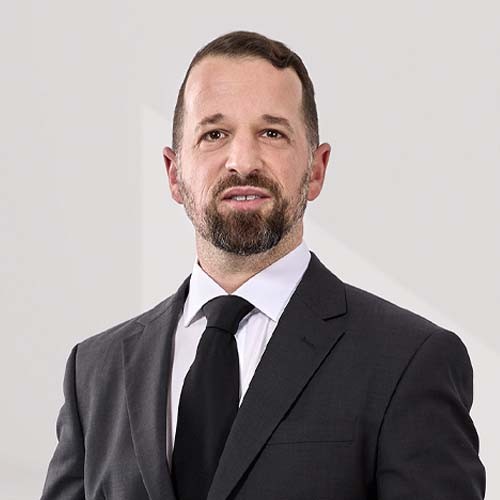Rethinking diagnostics and research: Our AI team introduces itself
We receive hundreds of samples daily at MLL from practices, medical care centers and clinics, which must be analyzed in a timely manner with consistently high examination quality. Artificial Intelligence and digital processes play an increasingly vital role to process the growing number of samples rapidly and accurately.
The AI (Artificial Intelligence) team is one of the newest organizational units at MLL. The team consists of Data Scientists and Engineers led by Sven Maschek. In addition to developing a unified and scalable AI platform for routine diagnostics across all diagnostic areas, the team also supports the Research & Development departments.
Data, expertise and algorithms, (not) an ordinary job
At MLL, large amounts of raw data are generated every day: These
range from digital image data, for example from microscopy, tabular data from
measurements in other diagnostic areas and text documents to complex data from
sequencing. The methodical storage of these different data types in AI models
is a central task of the AI team. However, the mere collection of digital data types
is not enough; this is where the real work of our data scientists and engineers
begins:
data preparation and analysis, the development and training of AI models, and
the continuous evaluation of results. The AI team works closely with physicians
and researchers from the individual diagnostic areas to incorporate their
combined expertise into the AI models. In addition, data protection aspects
must be consistently observed.
So how does such an AI model help with everyday diagnostic tasks or research questions? This is where the second central focus of our work comes into play: the continuous development of our MLL AI platform. The platform runs in a cloud to be able to provide the required computing capacity at any time. The partition of the cloud used by MLL is located in Frankfurt, is accredited and complies with DSGVO standards. The creation and continuous development of a simple, web-based user interface for the use of AI-supported workflows is one of the cornerstones that the AI team takes care of. In addition, the team also coordinates closely with colleagues in application development and IT to ensure integration and automated use through technical interfaces.
But even when an AI model becomes usable by being integrated into the platform, the work is not over for us in the AI team, because there are still other interesting tasks:
- Optimizing AI models in terms of speed and resource utilization to ensure the fastest possible diagnosis for our patients and also to take into account economic aspects
- Continuous monitoring of the performance of the AI models to derive further improvements
- the development of automatic pipelines to continuously collect feedback from users in order to continuously improve the models
- the support of our colleagues with publications
- and many other tasks
Possibilities of AI in leukemia diagnostics and therapy.
Digitization and automation are also playing an increasingly central role in healthcare. The COVID-19 pandemic has shown us how important it is to be able to produce findings digitally, independent of time and location, and the numerous use cases of GPT-4 have already made it clear to us what AI is already capable of achieving today.
Our ambition as an AI team at MLL is to support all our employees in the best possible way through the use of AI in their everyday and not so everyday tasks in diagnostics as well as in research & development and to establish MLL as a leading institute also in the field of artificial intelligence. To this end, we will further develop our AI platform so that it forms a central component on the path to personalized medicine and holistic diagnostic procedures through deeper integration of the diverse AI models and tools. Whatever tasks the future holds: We will continue to work to ensure that patients and physicians worldwide benefit from the latest innovations in AI, and that we can thus make our contribution to the best possible fight against leukemia.
The author

»Do you have questions about the article or would you like more information about our Team AI? Feel free to send me an email.«
Sven Maschek